Japanese Greetings // 31 To Use For Daily Life in Japanese
The Ultimate List of Japanese Greetings // Discover The Basics
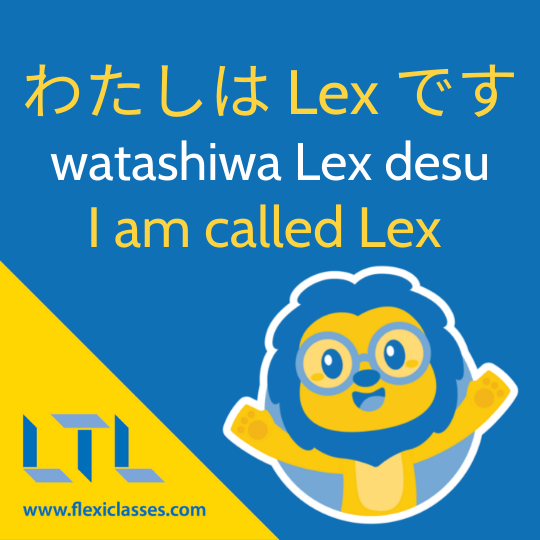
Today we are going to learn some basic Japanese Greetings used in daily life.
These greetings in Japanese can range from casual ones with your friends to more formal greetings.
Some of the phrases we’ll look at today include:
👋 Hello: こんにちは [ko nn ni chi wa]
☀️ Good Morning: おはようございます [o ha yo u go za i ma su]
😄 How are you? お元気ですか? [o ge nn ki de su ka]
Before teaching you how to say the basics, we want to give a little lesson on etiquette.
Japanese greetings can vary depending on who you are speaking to. We’ll cover this first, and then move onto the greetings in Japanese after.
You’ll then get to test your knowledge in our 10 question quiz at the end!
Choose what you’d like to read about here 👇
KEY THINGS TO KNOW
Japanese Greetings | Important Things to Know
Japanese Greetings | Formal & Informal
PHRASES TO LEARN
Japanese Greetings | Most Used
Japanese Greetings | Other Useful Greetings
Japanese Greetings | On the Phone
BONUS | Quiz
Japanese Greetings | FAQ’s
Japanese Greetings – Important Things To Know

Japanese sentences will vary depending on who you are talking to, especially age wise.
This is one big thing you will have to be careful of when speaking Japanese.
Another thing about the Japanese language you need to know…
When the sentence is longer, it generally becomes more polite.
If that doesn’t quite make sense yet, don’t worry, you will see shortly!
Now, let’s begin…
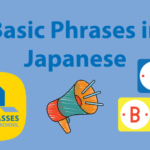
Basic Phrases in Japanese // Learn 32 Essential Phrases (With Flashcards & FREE Quiz)
Basic Phrases in Japanese // Learn these phrases to make your first steps when learning Japanese. We teach you how to get by when speaking basic Japanese.
Japanese Greetings | Formal and Informal
Let’s go through the levels of politeness and respect in the Japanese language, then get the hang of the structure and how people are categorised.
Informal Friendly Greetings
This applies to people who are the same age or younger. Informal Japanese greetings are of course used between friends and family.
However this can get a little more complex because these greetings also apply to family members, but it all depends on how close you are to that family member.
Here are some examples of whether someone should be greeted formally or informally in Japanese.

Example 1 : My aunt (informal).
Every time I would go on holiday, I would stay at my aunts. We often meet for food throughout the year also.With my aunt I would therefore use informal Japanese greetings.
Also…
Example 2 : My grandmother (informal).
I grew up with my grandmother and lived under the same roof.As I know my grandmother as well as anyone, informal Japanese greetings would also apply here.
On the contrary…
Example 3 : My uncle – (formal).
I see him once a year at most, we greet and exchange life updates though we rarely talk otherwise.As I know my uncle a lot less, we would use a more formal Japanese greeting.

Japanese Loanwords 🤩 41 Fun Examples with Pronunciation
Japanese Loanwords are actually a great way to boost language learning motivation because it makes you realise you can still find similarities with English!
Formal Friendly Greetings
So when would you use more formal friendly Japanese greetings?
This applies to people that you work with, your colleagues for example, or people that are older than you.
This could also be someone you don’t know well, strangers young and old.

Here are some real life examples.
Example 1 : Colleagues – formal polite term.
I would use formal and polite terms with any colleague I work with, young and old. Some people such as team leaders or managers tend to use informal friendly terms towards lower rank and younger colleagues.

Also…
Example 2 : Best friend’s mum – formal polite term.
She watched me grow up and I often had sleepovers at her house. However, she isn’t family, and it’s therefore preferred to use formal and polite terms out of respect.
So when should you be using the most formal Japanese greetings?
Kind of obvious really isn’t it?
Reserve the most formal Japanese greetings to your boss, clients, and customers, the ones that you REALLY don’t want to mess with.
Now we hope this hasn’t overwhelmed you too much!
Don’t worry though, even for us native Japanese speakers these terms can feel very complicated and difficult.
In fact, I even google certain polite terms from time to time!
The key is simply to put the effort in and show some respect, and you’ll be just fine. People appreciate the effort and time put in for non-native Japanese speakers.
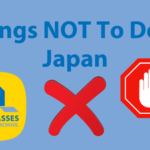
Things Not to Do in Japan 🙅♀️ Guide to Japanese Etiquette
Things Not to Do in Japan 🇯🇵 The ULTIMATE list of DON’Ts for your time in Japan and how to maintain perfect Japanese Etiquette
Japanese Greetings | Most Used
OK now we’ve got the formalities out of the way it’s time to start learning some Japanese greetings.
We’ll start with the most used ones, and we’ll show you the formal and informal ways of saying each one just to help you!
| English | Informal | Formal Polite | Formal Respectful |
|---|---|---|---|
| Good Morning | おはよう [o ha yo u] | おはようございます [o ha yo u go za i ma su] | おはようございます [o ha yo u go za i ma su] |
| Good Evening | こんばんわ [ko n ba n wa] | こんばんわ [ko n ba n wa] | こんばんわ [ko n ba n wa] |
| Hello | 元気? [ge nn ki?] | こんにちは [ko nn ni chi wa] | こんにちは [ko nn ni chi wa] |
| Good Night | おやすみ [o ya su mi] | おやすみなさい [o ya su mi na sa i] | おやすみなさい [o ya su mi na sa i] |
| How Are You? | 元気? [ge nn ki?] | お元気ですか? [o ge nn ki de su ka] | いかがお過ごしですか? [i ka ga o su go shi de su ka] |
| Long Time No See | 久しぶり [hi sa shi bu ri] | お久しぶりです [o hi sa shi bu ri de su] | ご無沙汰しております [go bu sa ta shi te o ri ma su] |
| Bye (version 1) | またね [ma ta ne] | では、また [de wa, ma ta] | 失礼いたします [shi tsu re i i ta shi ma su] |
| Bye (version 2) | バイバイ [ba i ba i] | さようなら [sa yo o na ra] | お疲れ様です [o tsu ka re sa ma de su] |
| Bye (version 3) | じゃあね [ja a ne] | – | – |
| Welcome | ようこそ [yo o ko so] | いらっしゃいませ (i ra ssha i ma se) | – |
| Hey! (typically used between male friends) | おす (o su) | – | – |
お疲れ様です [o tsu ka re sa ma de su] is such a useful Japanese greeting in a professional environment, like at the office.
You can use this with anybody you work with, colleagues, bosses or managers.
It is extremely versatile and can be used as “Good morning”, “Good afternoon”. “Good night”, “Hello”, and “Bye”. I use this expression at least 5 times a day.

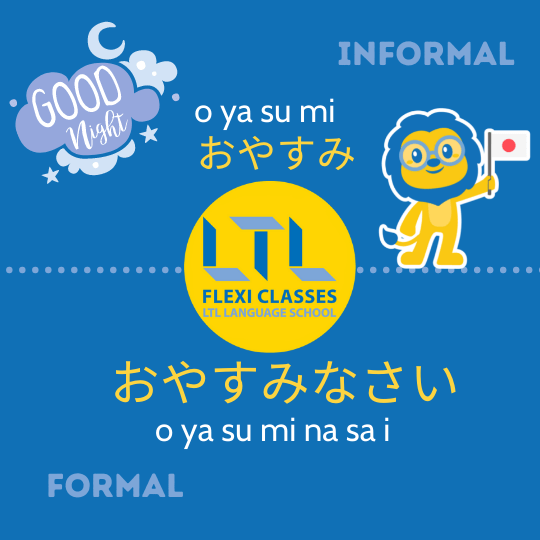
Japanese Greetings | Other Very Useful Phrases
There’s plenty more we can learn also.
Here are some more of the best and most used Japanese greetings:
| English | Japanese | Romanisation |
|---|---|---|
| Nice to meet you | はじめまして | ha ji me ma shi te |
| It’s nice to meet you (more formal) | お会いできて光栄です | ai dek i te kou ei desu |
| Yo! | よー | yo o |
| Yoohoo! | ヤッホー | ya ho o |
| I’m back | ただいまー | ta da i ma a |
| What’s Up? | どうも | do o mo |
That’s plenty of Japanese greetings for you to learn.
Did we miss any out? Why not tell us in the comments below and we can add them to the article 🙂
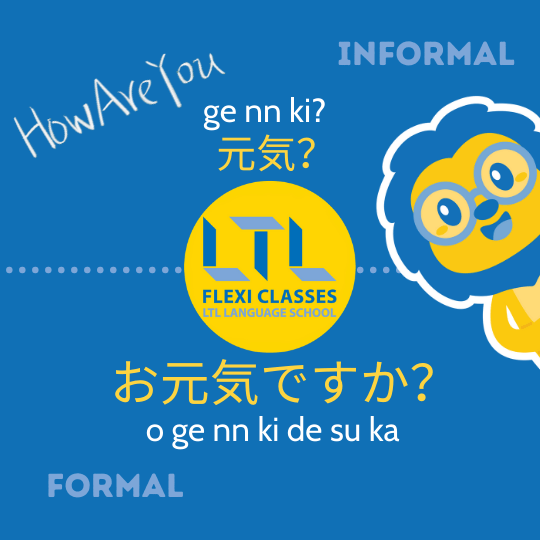
Japanese Greetings | On The Phone
On the phone Japanese greetings can actually be different. Here are 3 examples of how we greet people using our phones:
- Hello
- もしもし [mo shi mo shi]
- This greeting comes from the word 申し [mo u shi] – say / call , which is an old word. This is used on the phone, much like how 喂 is used in Chinese on the phone, and not the more commonly known 你好.
- Bye (informal friendly term)
- バイバイ [ba i ba i]
- Bye
- Bye(formal polite/respectful term)
- 失礼いたします [shi tsu re i i ta shi ma su]
- I will excuse myself / I will hang up
And that concludes our lesson on Japanese greetings… but how many did you remember?!
Japanese Greetings // BONUS QUIZ
It’s time to quickly put yourself to the test with this 10 question quiz.
How many greetings in Japanese do you remember?! Let’s find out now…
Love learning languages?
Why not check out our guide on the essential Chinese greetings you need for a visit to Beijing, Shanghai or Shenzhen!
Maybe you are wanting to go to Korea? In that case you need to know the different ways of saying hello in Korean as they differ depending on who you speak to!
Or perhaps you want to go a bit more left-field and learn how to say hello in Vietnamese?
Interestingly there are two Vietnamese greetings that sound almost identical to two popular European versions – but do you know which ones they are?
Come and find out!
Thanks for reading, and don’t forget, you can enjoy 3 free hours of Japanese lessons right here!
Japanese Greetings // FAQ’s
How do you say “good morning” in Japanese?
Good morning in Japanese is おはよう [o ha yo u].
How do you say “what’s up” in Japanese?
What’s up, or “How are ya doing” in Japanese is 元気?[ge nn ki?].
How do you say “long time, no see” in Japanese?
Long time, no see in Japanese is お久しぶりです [o hi sa shi bu ri de su].
How do you say “see you later” in Japanese?
See you later, or goodbye in Japanese is またね [ma ta ne].
How do you say “nice to meet you” in Japanese?
はじめまして which is pronounced ha ji me ma shi te.
Want More From LTL?
WANT TO LEARN JAPANESE? Check out our online Japanese courses here.
We offer a 7-day free trial to all new students where you can study 24/7.
What about studying Japanese in Japan instead? We’ve got your back. Our Japanese courses in Tokyo can either be taken in small groups of no more than 5 students or individually for a more tailored experience.
We even offer incredible homestay experiences in Tokyo as well.
Come and be a part of this amazing community.










2 comments
ありがとうltl
どういたしまして!!